To stop a runny nose, you can use eucalyptus essential oil, ginger and garlic tea and nettle tea. These can also help to improve symptoms like a stuffy, dry cough, headaches and general malaise, as they are rich in antioxidant, anti-inflammatory and immunostimulating substances that strengthen the body‘s natural defenses and help to eliminate phlegm.
A runny nose can be caused by inflammation in the nasal mucosa. This can be triggered by a viral or bacterial infection, or an allergy to dust, mites, fur, tree or flower pollen or smoke. These conditions cause a release of histamine in the body, which is a substance that can contribute to a runny nose.
Although these home remedies won’t cure a runny nose, it can help to relieve symptoms and prevent worsening. They can be used as a complement to your doctor‘s prescribed treatment.
1. Eucalyptus essential oil
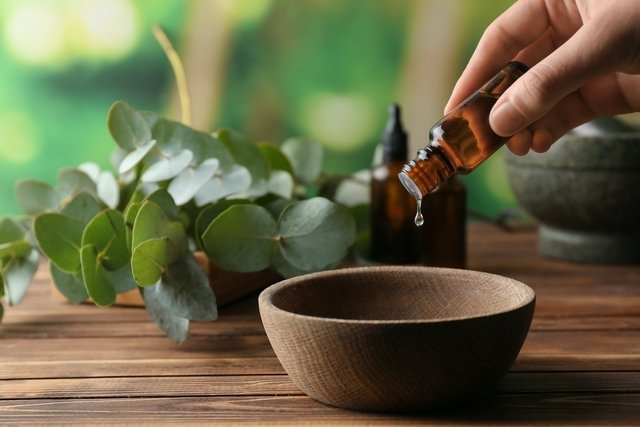
Eucalyptus essential oil contains eucalyptol, which is a substance with anti-inflammatory action in the respiratory airways. It can help to reduce and eliminate phlegm, which can contribute to a stuff or runny nose.
This essential oil should be used solely for inhalations, and should not be consumed orally.
Ingredients
- 3 to 5 drops of eucalyptus essentia oil
- 1 liter of boiling water
How to prepare
Add the drops of oil to the boiling water. Then cover the back of your head and the pot with a towel to concentrate the steam toward your face. Inhale the vapor for 10 minutes.
Eucalyptus essential oil should not be used by children, nor by pregnant or breastfeeding women. Some people may have a sensitivity to eucalyptus essential oil, especially people with asthma or a respiratory allergy. If you notice worsening of your runny nose, intense coughing or difficulty bleeding, discontinue use and inhalations immediately.
2. Ginger and garlic tea
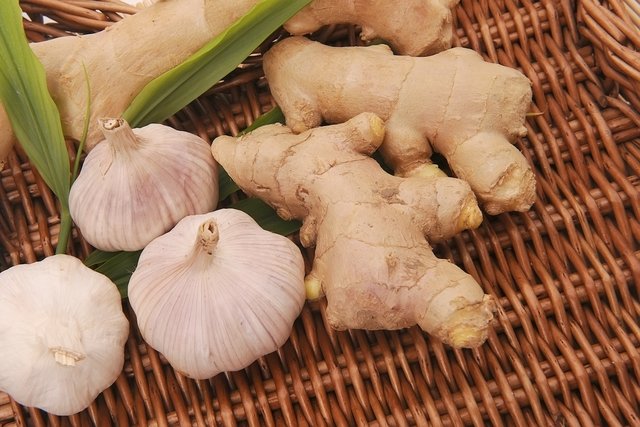
Ginger and garlic tea contain antioxidant and anti-inflammatory properties due to the allicin present in garlic, and the phenolic compounds (like gingerol, chogaol and zingerone) in the ginger. These can help to combat symptoms like a runny nose, stuffy nose, sore throat and general malaise.
In addition, this tea can help to strengthen the immune system and reduce the duration of your runny nose. Check out other health benefits that ginger can provide.
Ingredients
- 3 clovers of garlic, peeled and cut in half
- 1 cm of ginger root, or half a teaspoon of powdered ginger
- 3 cups of water
- Honey to sweeten (optional)
How to prepare
Boil the water with the garlic. Remove from heat and add the ginger and honey. Strain and serve.
Ginger should not be taken by people who use anticoagulants. In these cases, it can be left out of the recipe.
3. Peppermint tea
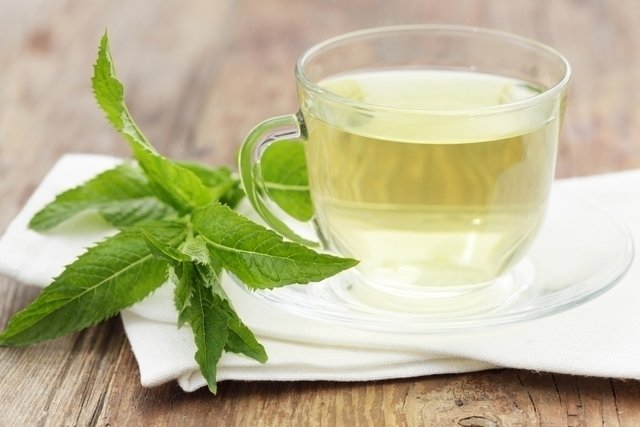
Peppermint tea is rich in menthol, an essential oil that helps to improve symptoms like runny nose, stuffy nose, headache, and coughing.
This tea also contains anti-inflammatory properties that help to reduce airway inflammation, which can improve symptoms associated with a runny nose.
Ingredients
- 6 peppermint leaves, chopped
- 150 mL of boiling water
How to prepare
Pour the water and leaves into a cup and steep for 5 to 7 minutes. Strain and sweeten with honey as desired. You can drink 3 to 4 cups of this tea per day.
4. Apple cider vinegar
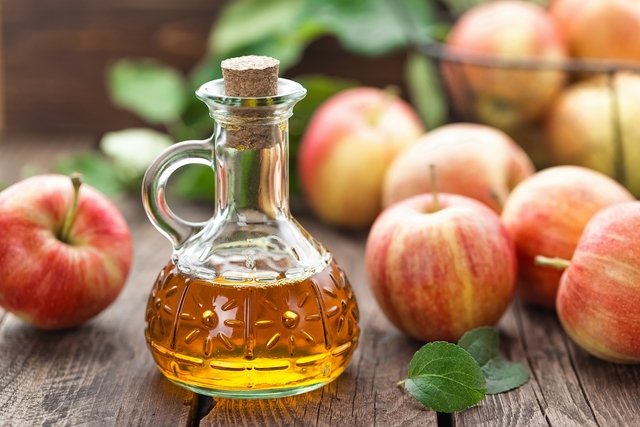
Apple cider vinegar contains polyphenols with antioxidant and anti-inflammatory properties that can help to strengthen the immune system and combat airway inflammation. It can be useful for reducing symptoms like runny nose, stuffy nose and coughing.
Learn more about how apple cider vinegar can be used to achieve various health benefits.
Ingredients
- 1 to 2 tablespoons of apple cider vinegar
- 1 cup of water
How to prepare
Add the vinegar to the water and stir. Drink 1 cup, 20 minutes before breakfast lunch or dinner.
You should rinse your mouth with water after consuming this drink to prevent tooth decay. Wait to brush your teeth 30 minutes after drinking this solution.
Apple cider vinegar can also be used throughout the day to season food or salads, for example.
5. Thyme infusion
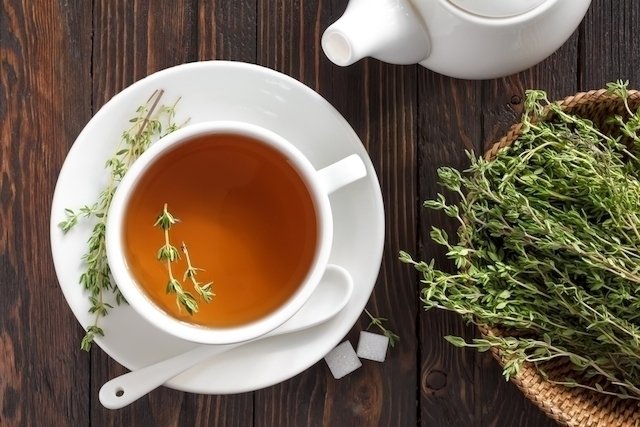
A thyme infusion is rich in anti-inflammatory and antioxidant substances, like thymol, carvacrol, cimene and linalool. These have expectorant action with promote phlegm elimination as well as the relief of a stuffy nose.
Ingredients
- 1 tablespoon of dried thyme extract or 2 fresh sprigs of thyme
- 1 liter of boiling water
How to prepare
Add the thyme to the boiling water and steep for 5 to 10 minutes. Then strain and drink up to 3 cups per day.
Thyme infusions should not be used by people with stomach problems (like gastritis or ulcers) or by people with liver problems. It should be avoided by those taking anticoagulants, like warfarin or clopidogrel.
6. Nettle tea
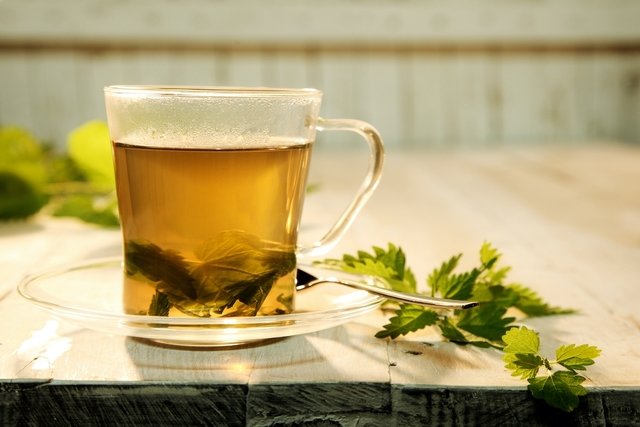
Nettle tea blocks the effect of histamine in the body, which is the substance responsible for inflammatory responses triggered by allergies. Taking this tea throughout the day can relieve symptoms from allergies, like a runny nose, itching and a stuffy nose.
Ingredients
- 2 teaspoons of nettle leaves, chopped
- 200 ml of water
How to prepare
Boil the water with the nettle leaves, then steep for an additional 10 minutes. Strain and drink 3 to 4 cups per day.
Another option is to take nettle capsule supplements. You can take 300 to 350 mg, 2 to 3 times per day.
Nettle tea should not be taken by children, breastfeeding women, pregnant women or people with cardiac or kidney dysfunction.
